Client:
Personal Project
Role:
UIUX Designer
Duration:
Nov - Dec 2022
MINDA : A Mental Health App
MINDA is a mobile application designed to address the growing need for accessible and personalized mental health support. Recognizing the stigma and barriers associated with traditional therapy, MINDA aims to empower users to take charge of their mental well-being through a user-friendly and comprehensive platform.
- UI Design
- UX Design
- Wireframing
- Prototyping
- Figma

Background
MINDA is a mental health app that helps users improve their mental wellbeing. The app tracks users' moods, provides meditation technique to overcome anxiety and depression, and connects users with certified therapists for online therapy sessions. MINDA also offers relatable reading materials and tips to keep users motivated, and allows them to connect with peers who have similar mental health issues.
Goals
Increase Accessibility
Make mental health resources readily available to a wider audience, regardless of location or socioeconomic background.
Reduce Stigma
Create a safe and supportive environment that fosters comfort and trust, allowing users to openly and confidently address their mental health concerns.
Empower Users
Provide users with the essential resources, tools and information necessary to manage their mental health and build resilience.
Personalized User Experience
Craft a user experience that is finely tuned to individual needs and preferences by utilizing data-driven insights and personalized recommendations.
Target Audience
The target audience for the Minda app includes individuals aged 16-40 years old, struggling with mental health issues, and inclusive of different genders and disabilities.
Design Process
User Interviews
Interviews were conducted with individuals from diverse backgrounds who experience mental health challenges. The goal was to understand their current methods of managing mental health, their pain points, and their expectations from a mental health app.
Surveys
Online surveys were distributed to gather comprehensive insights into user needs and preferences for mental health apps. These surveys captured detailed information on users' mental health challenges, expectations, preferred features, usability, and satisfaction with existing solutions. The collected data aimed to identify trends, unmet needs, and areas for improvement, helping to shape a more user-centric and effective mental health app.
Competitive Analysis
Existing mental health apps were analyzed to pinpoint best practices and identify market gaps. This analysis aimed to highlight effective features and functionalities while uncovering areas needing improvement or innovation, thus informing the development of more competitive and user-focused mental health solutions.
Design Decision
Personalized User Experience
Users were given options to personalize their experience, such as setting daily goals, choosing preferred meditation styles, and customizing the app's interface.
Community Building
A safe and anonymous community forum was implemented to facilitate peer-to-peer support and connection. This forum allows users to share experiences, seek advice, and offer support to one another in a secure and confidential environment.
Content Curation
Evidence-based articles, tips, and exercises were curated from mental health professionals to offer users reliable and trustworthy resources. This ensured that users had access to high-quality, expert-approved content to support their mental well-being.

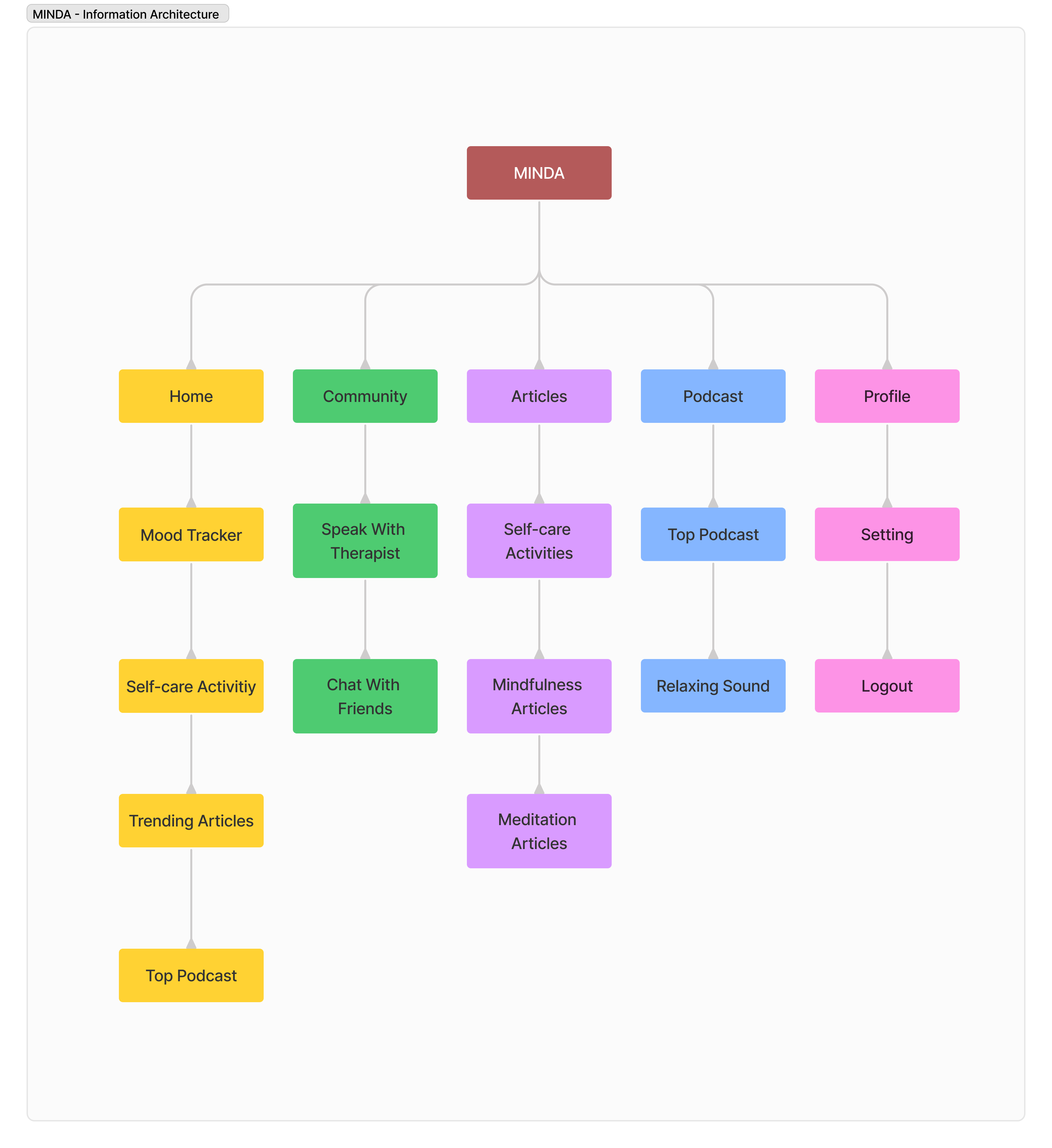
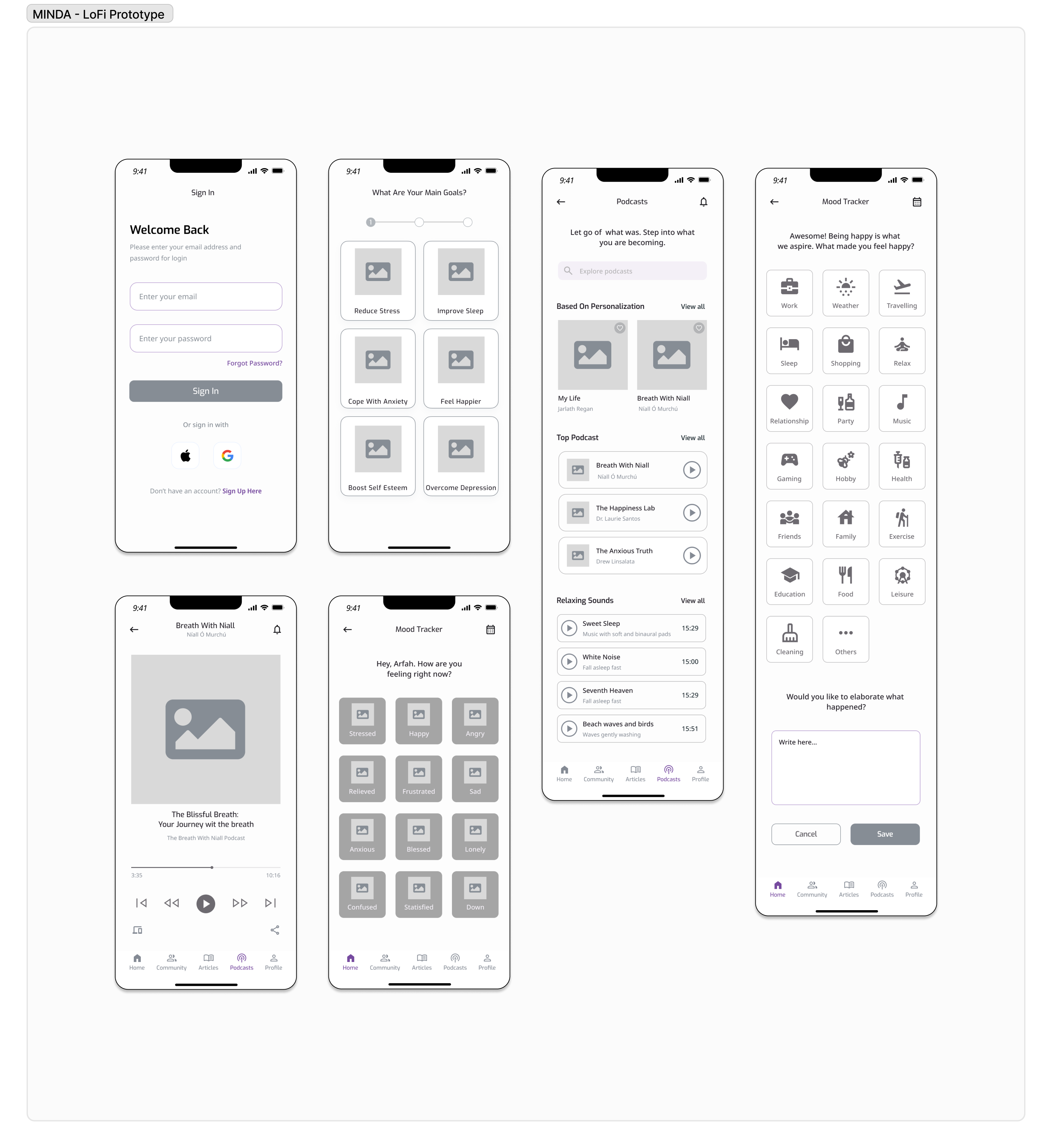
Final Product
Mood Tracking
Users can track their moods daily and identify patterns over time, gaining insights into their emotional well-being.
Journaling Space
A secure journaling space provides users with a confidential platform to express their thoughts and emotions freely.
Guided Meditations
A library of guided meditations caters to various goals. Users can find sessions designed for relaxation, enhancing focus, and improving sleep.
Educational Resources
The app offers evidence-based articles and exercises. These resources are curated by mental health professionals. Each article is grounded in scientific research and best practices.
Anonymous Community Forum
The app offers a safe space for users to connect. Individuals can support each other securely. It fosters a community where everyone feels safe. Users can share experiences and advice in a trusted environment.
Curated Mental Health Podcasts
A curated selection of mental health podcasts hosted by professionals and covering a wide range of topics related to well-being, self-care, and specific mental health conditions.
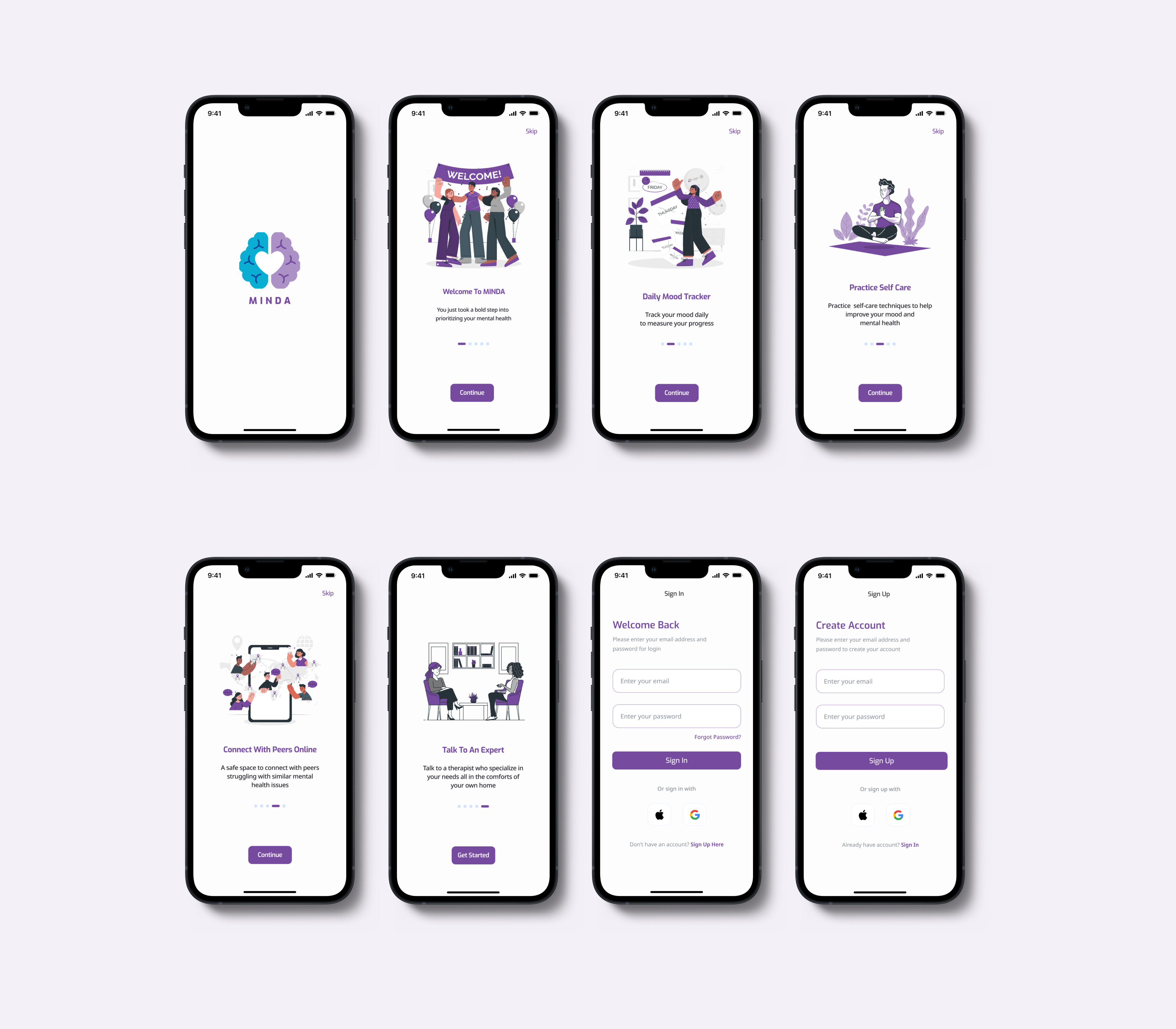
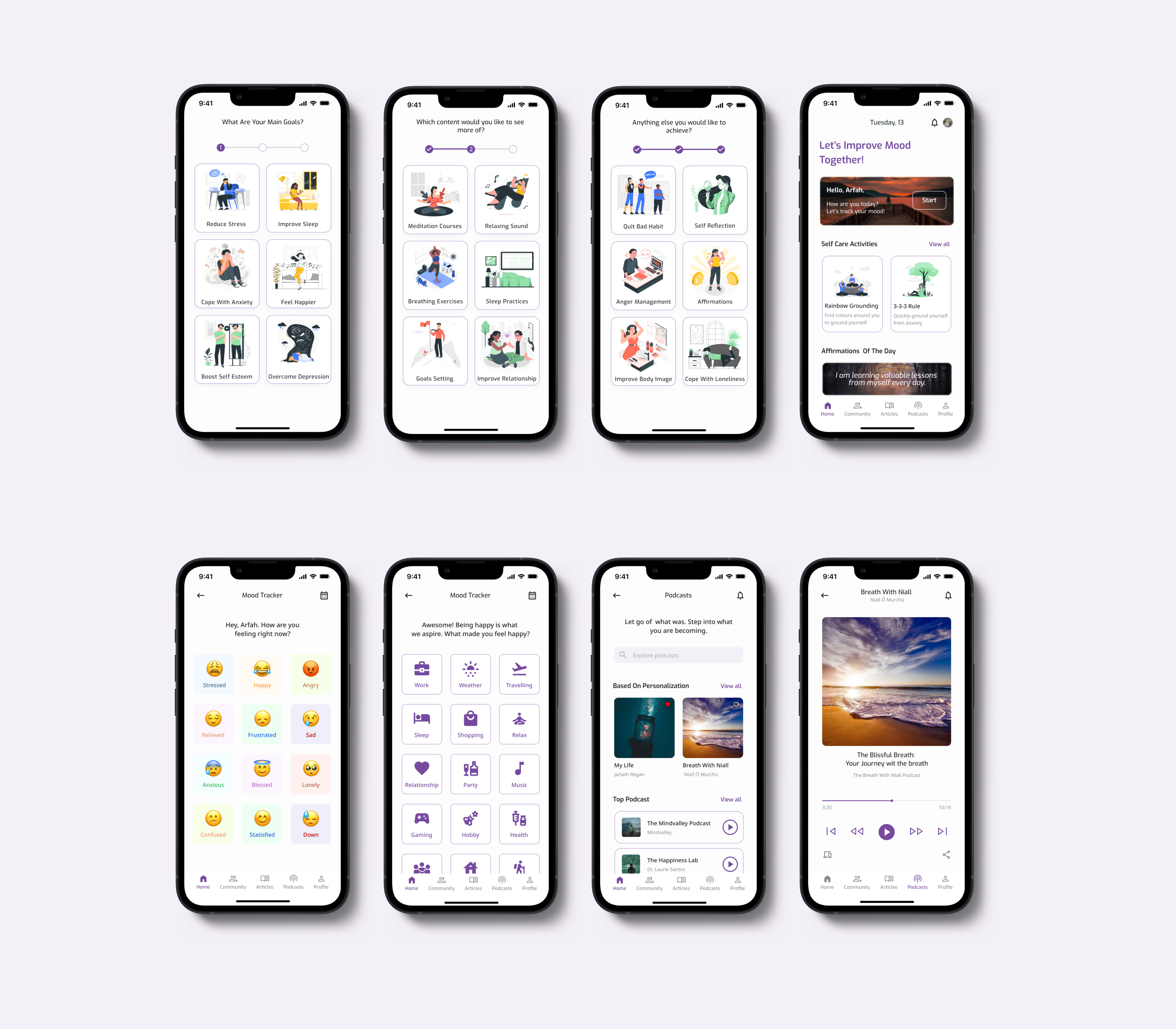
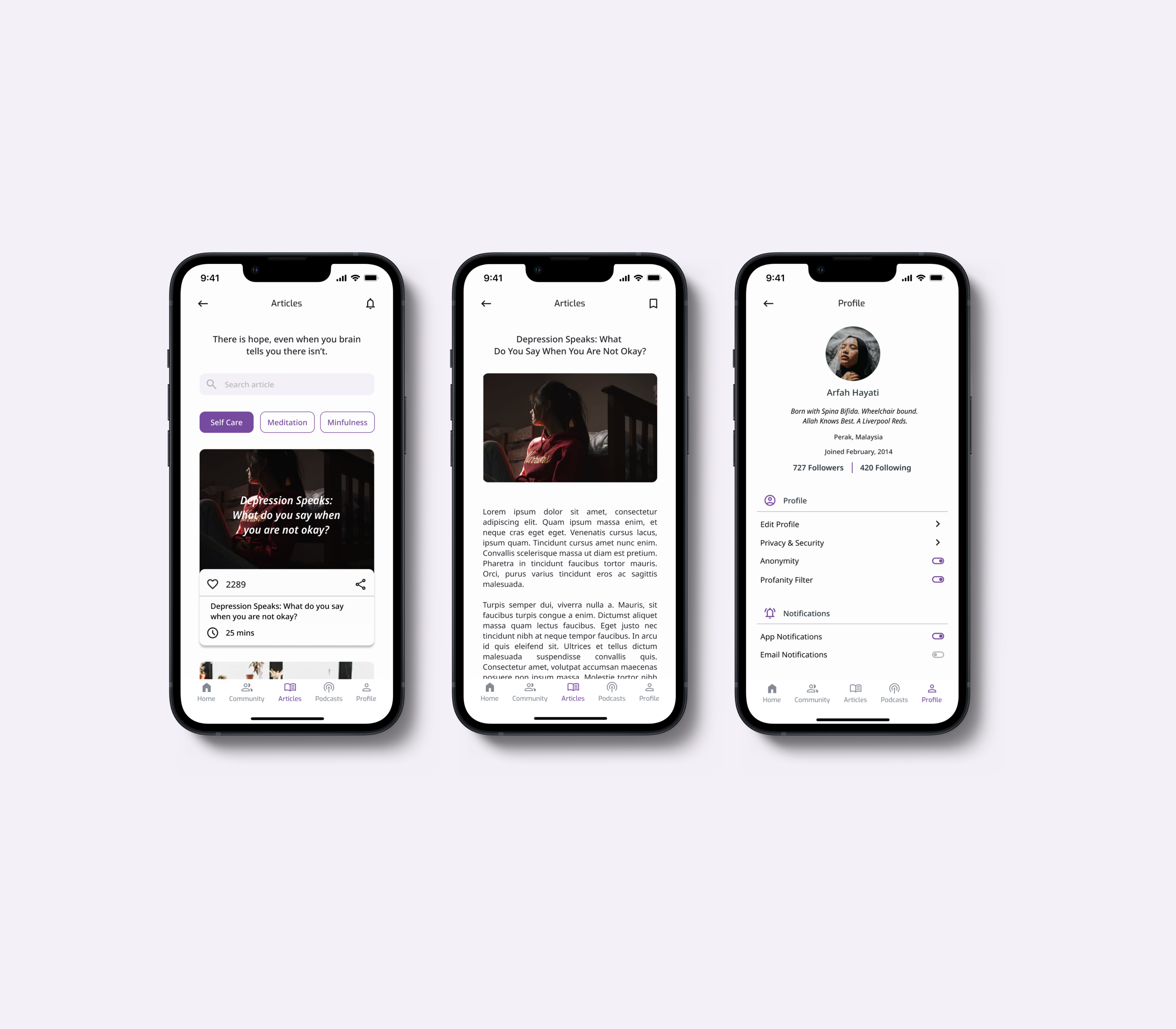
Takeaway
The UX design process for MINDA focused on creating a user-friendly and empowering app to support mental health. Through user research, design iterations, and usability testing, the final product offers a comprehensive suite of tools and resources, including podcasts, to help users manage their mental well-being. However, the success of MINDA will depend on ongoing user feedback and continuous improvement based on user needs.
Future Consideration
Seamless Data Integration
Allowing users to connect their wearable devices to sync data like sleep patterns, activity levels, and heart rate variability with MINDA.
Multilingual Support
Translating the app interface and content into multiple languages will make it accessible to a wider audience and cater to diverse cultural needs.
Interactive Modules
Developing interactive modules within the app that teach users about emotional regulation, coping mechanisms, and building healthy relationships.